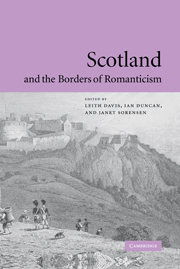The sea is everywhere, so to speak, in verse and fiction of 1680 to 1820, omnipresent in stories and poems and ranging widely in meaning. Setting, plot device, metaphor, aesthetic object, it is there troubling a sense of fixed national identity but also offering a theatre for heroic national naval exploits; beckoning the intrepid on voyages of discovery or economic opportunity; imposing radical changes on the lives of men and women unlucky enough to fall victim to the press gang or to the punishment of transport; threatening, stranding, and drowning sailors and passengers; eliciting encounters with the sublime; and conveying the goods and people that will fundamentally transform spatial relations and social affiliations. Transatlantic literary studies, aiming to interrogate the model of literary production that restricts it to national borders, might borrow from what some have called “Oceanic Studies” to look not only at the exchange between various geographically based cultures but also at the writing of the sea itself, of the literal space across but also outside of fixed geopolitical territories that was so ubiquitous in writing in English in the long eighteenth century.
Fascination with the sea and sea travel was not new; references to the sea and even international maritime travel abound in writing across centuries. Yet while writing of the sea during the expansion in British maritime empire from 1680 through 1820 extended longstanding maritime themes, it also responded to new realities, such as a growing maritime commercial empire, a mounting trade in slaves, and the increasing consolidation of nationalism. It also took part in and helped shape various generic transformations. Writing generated out of maritime experience in this period ranged from official multi-volume prose accounts of oceanic travels, scientific discoveries, and military encounters to broadsheet ballads and songs recounting everything from English victories at sea to the exploits of infamous buccaneers. It included picaresque and, later, historical fiction, georgic poems describing and even instructing in the ways of maritime labor, and highly aestheticized poetic representations of the sea. In the experiments in fiction writing we have come to call novels and in hybrid verse forms deploying complex uses of voice, these forms comingle and shape each other, as representations of the ocean become the ground for intricate and varying forms of cultural affiliation.


